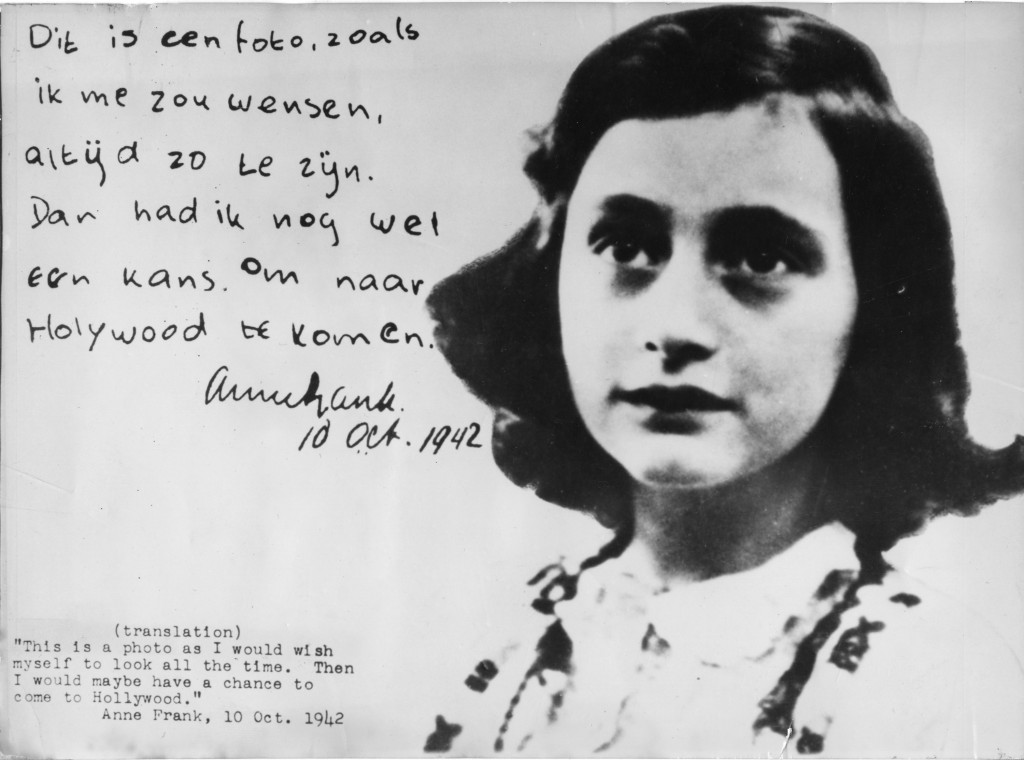SCHOOL – Anne Frank, diaries and social media

28.9% of the students in Italy who faced this year’s first session of the high school graduation exam chose Anne Frank. Or, more precisely, an excerpt by Maurizio Caminito from Profiles, selfies, and blogs citing Anne Frank’s diary. So are we talking about the Holocaust? Not at all. About Jews? Even less. About persecuted people forced into hiding? Not even that. It’s simply a starting point to encourage graduating students to reflect “on how diary writing has changed due to the rise of blogs and social media”. It’s worth reporting the quote and how it’s introduced and commented on.
“In her diary, Anne Frank narrated her life to an imaginary friend named Kitty. She writes to her, among other things: ‘I’m terribly afraid that everyone who knows me as I always am, will discover that I also have a different side, a better and finer side. I’m afraid they’ll laugh at me, think I’m ridiculous and sentimental, and not take me seriously. I’m used to not being taken seriously, but only ‘Light-hearted’ Anne is used to it and can take it; ‘Serious’ Anne is too weak and would collapse.’
Who today writes more in solitude, penning words in a notebook only they (or she) have the key to? Who seeks, through their diary, the discovery of an ‘inner silence’, ‘the deepest part of themselves’, which will form the foundation for their interaction with others?”
From there, the author continues the comparison between the diary of yesteryear and self-representation in the digital age. I don’t know and can’t judge Caminito’s text, but this excerpt, as it appears in the exam question, is disconcerting: it says nothing about who Anne Frank was, and consequently does not explain why she found herself writing in solitude to an imaginary friend instead of going out and having fun with her peers; someone might think it was her free choice.
Okay, it’s assumed that graduating students know who Anne Frank was. Yet the circumstances in which she wrote the diary are presented as completely irrelevant: the Jewish girl whom Wikipedia defines as “a symbol of the Holocaust” is simply a young girl writing a personal and secret diary because she did not yet live in the age of blogs and social media. Did the question’s creators deliberately omit any reference to Jews and the Holocaust, or are we simply living in an era of wild decontextualization? And which of these hypotheses is more unsettling?
This exam prompt made me want to reread Philip Roth’s The Ghost Writer, set in 1956, which portrays (even if only in the protagonist Nathan Zuckerman’s imagination) an Anne Frank who survived the Holocaust and describes her feelings upon discovering, at 26, that her diary was published by her father, thus realizing she had become the famous writer she dreamed of being as a girl; it then reflects on the value of the diary and what she considered her mission, also in relation to how her Jewish identity is presented. Following Roth’s suggestion, I tried to imagine an Anne Frank who survived, now in her nineties. Who knows what she would think of blogs and social media. Perhaps she might even feel a bit envious of teenagers who can air their personal affairs publicly without having to hide.
Anna Segre teacher, Alfieri Classical High School, Turin
